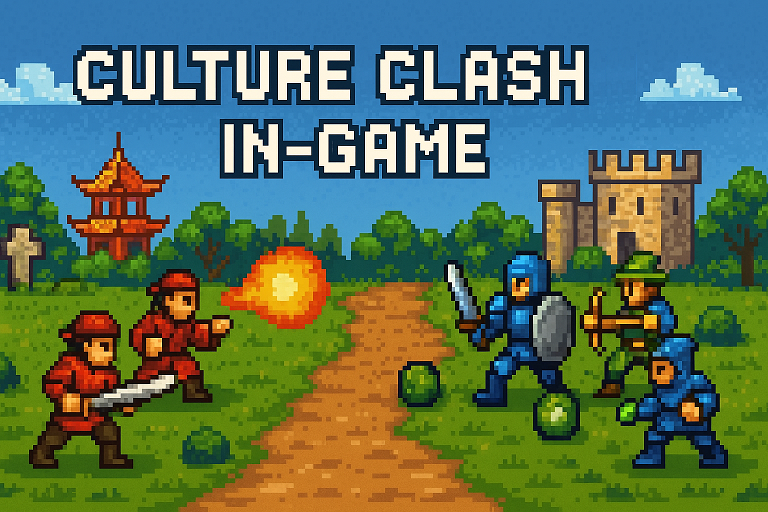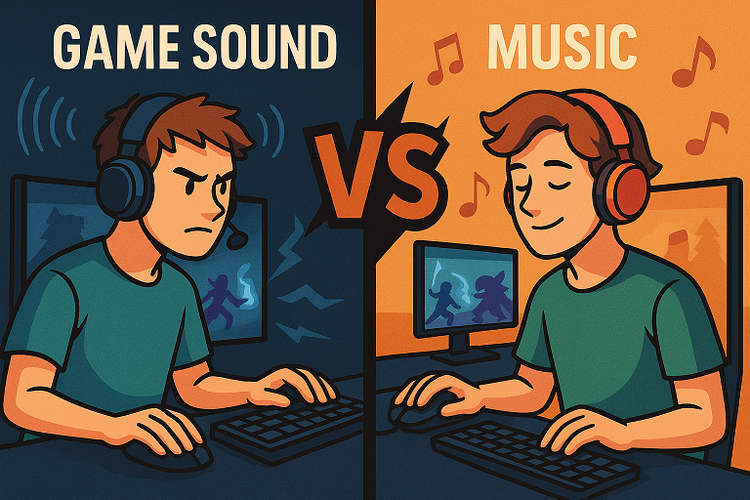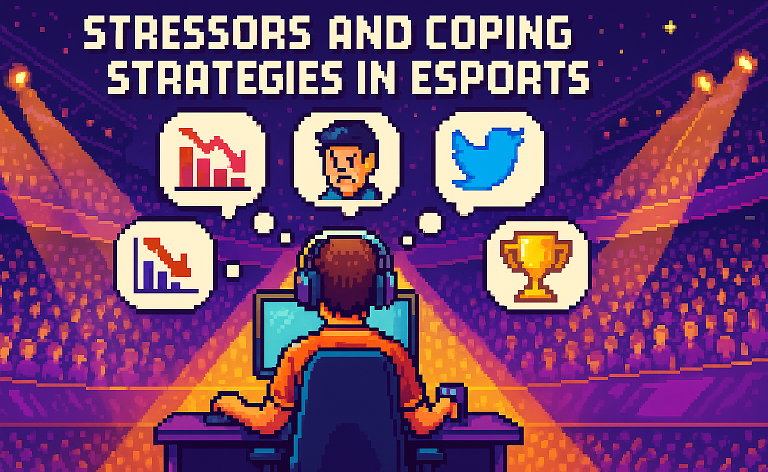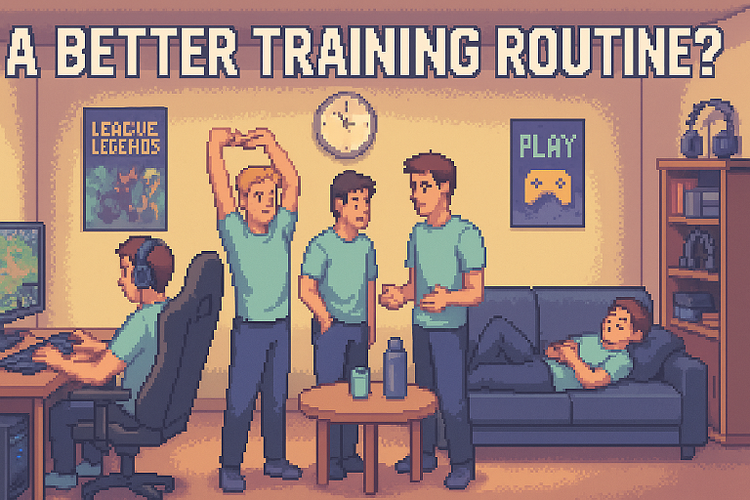Esports-Winter - Why Esports Organizations Struggle Financially
We discuss the video game and esports industry, as well as the factors that caused it to struggle financially after COVID-19.

Hello everyone,
This week's newsletter is going to be all about how the ripple effects of the COVID pandemic are catching up to the Esports industry, particularly the teams. On Thursday, an article was published discussing the Esports winter - how Esports organizations deal with the recession. In my newsletter from three weeks ago, I briefly touched on this topic, explaining why organizations are facing financial struggles. But, let's start from the beginning... About three weeks ago, we received news that Copenhagen Flames - who had been in the business for about seven years - filed for bankruptcy. About a week later, FaZe Clan announced that its heavy investors (e.g. Snoop Dogg) and top management are doing a share offering (they're publicly traded) to acquire money since the organization isn't in a great spot financially. Since then, we had more news about other teams struggling financially. The same week (when the FaZe Clan news hit), I briefly explained in my newsletter why I belief Esports organizations are facing tough times financially. I think that, right now, we're witnessing the ripple effects of the overall economic downturn of the past years. During and after the pandemic, consumer spending has declined and inflation has taken its toll. All the major economic forces had talks about recessions. Some countries even hit recession (even though it was only for a short time). As a result, ad revenue, sponsorships, and any type of advertising have declined for companies like Meta and Google. Over the past year, we've also seen major layoffs in the tech sector, with tens of thousands losing their jobs. However, job numbers are on a roll again, but not in the tech sector. The hiring has mostly been in the travel and hospitality sector. This makes sense as people start traveling again "normally" - similar to pre-COVID. When people are struggling to buy essentials like food, gas, and rent, and spending money on traveling, they don't have money to spend on shiny new gaming gear like keyboards, headsets, or computers. This makes investing and sponsoring esports organizations almost obsolete. Companies won't advertise these types of products since there's no demand for them. The article that came out this Thursday featured interviews with executives from some of the top esports organizations such as Liquid, SK, and G2. In addition to echoing my thoughts, they further explained factors why so many Esports organizations are financially in a poor situation (no pun intended) - why they are in the Esport winter.
This week's newsletter is going to be all about how the ripple effects of the COVID pandemic are catching up to the Esports industry, particularly the teams. On Thursday, an article was published discussing the Esports winter - how Esports organizations deal with the recession. In my newsletter from three weeks ago, I briefly touched on this topic, explaining why organizations are facing financial struggles. But, let's start from the beginning... About three weeks ago, we received news that Copenhagen Flames - who had been in the business for about seven years - filed for bankruptcy. About a week later, FaZe Clan announced that its heavy investors (e.g. Snoop Dogg) and top management are doing a share offering (they're publicly traded) to acquire money since the organization isn't in a great spot financially. Since then, we had more news about other teams struggling financially. The same week (when the FaZe Clan news hit), I briefly explained in my newsletter why I belief Esports organizations are facing tough times financially. I think that, right now, we're witnessing the ripple effects of the overall economic downturn of the past years. During and after the pandemic, consumer spending has declined and inflation has taken its toll. All the major economic forces had talks about recessions. Some countries even hit recession (even though it was only for a short time). As a result, ad revenue, sponsorships, and any type of advertising have declined for companies like Meta and Google. Over the past year, we've also seen major layoffs in the tech sector, with tens of thousands losing their jobs. However, job numbers are on a roll again, but not in the tech sector. The hiring has mostly been in the travel and hospitality sector. This makes sense as people start traveling again "normally" - similar to pre-COVID. When people are struggling to buy essentials like food, gas, and rent, and spending money on traveling, they don't have money to spend on shiny new gaming gear like keyboards, headsets, or computers. This makes investing and sponsoring esports organizations almost obsolete. Companies won't advertise these types of products since there's no demand for them. The article that came out this Thursday featured interviews with executives from some of the top esports organizations such as Liquid, SK, and G2. In addition to echoing my thoughts, they further explained factors why so many Esports organizations are financially in a poor situation (no pun intended) - why they are in the Esport winter.
🥶 The Esports Winter
As Arnold Hur, CEO of Gen.G said in January: the Esports winter is close and cold. In his opinion, more than 30% of the esports teams are not going to survive this winter. His estimation of how long the winter is going to last is two years.
📉 Sell! Sell! Sell!
We've seen reports about teams losing money left and right. Since FaZe Clan is publicly traded, their quarterly earnings are public. In Q1 of 2023, they lost about 14 million US dollars. In addition, they're planning to lay off about 40% of the company's employees.
The company that entered the floor of the NASDAQ stock exchange about almost one year ago (on July 20th, 2022) at $10 is now trading at $0.51 and therefore has lost 95% of its stock value. The current market capitalization is at 38.3 million.
Esports organizations such as 100 Thieves, Optic Gaming, and The Guard laid off people and are exploring the possibility of selling the company entirely.
🤑 Revenue & Sponsoring in Esports
As mentioned before, sponsors are not seeing value in investing in Esports teams at the moment. But sponsoring, besides content production, is one of the driving forces to generate revenue for these companies.
As Victor Goossens, founder and co-owner of Liquid, echoed that in a recession companies cut back on their expenses for marketing. Some teams, in addition to investors and sponsors, also make money through their media rights, digital merchandise, and other sources.
🦢 The Black Swan & 💵 Be Profitable! Now!
Victor Goossens further explains that although most teams' business plans makes sense in the long run, the need to hit the Break-Even-Point (the moment a company starts gaining money instead of losing) came too early for them.
Usually, companies seek investments to start their business, forecasting, and expecting a certain number of quarters (or even years) of losses before becoming profitable. In return, the investors get a piece of the company. However, when starting a new business, "Black Swan Events" (events that happen very rarely) are not part of the initial planning. The COVID pandemic was such a Black Swan Event. As pointed out before, the ripple effects of that are hitting the esports industry now. Apparently, even the tremendous growth during the pandemic (or maybe even because of that), a lot of organizations couldn't and can't withstand what's already here and yet to come.
🎮 Counter-Strike ≠ League of Legends ≠ Valorant ≠ FIFA
The same way Esports companies who may have different products they need to manage separately, Esports organizations‘ job is to evaluate and manage their teams in each Esports discipline differently. One may be more profitable (Cash Cows or Stars), the other may be potential but need a lot of investment (Question Mark), and others aren't profitable with no potential and should be eliminated (Poor Dogs). Yes, I just threw a BCG-Matrix (a concept from business administration) at you; you just got eductated. 😝
Depending on those, organizations can make more or less revenue by e.g. winning tournaments (leading to attracting sponsors and investors) or selling merchandise.
📊 Is Esports a Good Business Model?
There are companies that are doing well, especially if you look at Liquid. G2's CFO said that good business models in Esports exist, but only a handful. However, Liquid founder Goossens mentioned that the Esports business isn't huge and organizations have business plans that just don't have reasonable expectations - they overshoot.
💡 Esports organizations are struggling heavily financially, and a lot of them will not survive this Esports winter. Reasons are the ripple effects of the recession, the decline in sponsors, unsound business plans, and the pandemic as a Black Swan Event.
The ones who will survive are likely those who diversify and expand outside of Esports. As Goossens pointed out, esports in itself isn't a big industry, but if an organization can tap into fields associated with it, such as streaming, merchandise, media rights, etc., they have a chance to grow and see the next Esports spring.
Thanks for the read everyone! Read you next Sunday.
Christian 🙃
Join over 250+ (🤯) Gaming Science subscribers and become smarter every week.
"I love this type of content, thank you Chris."






